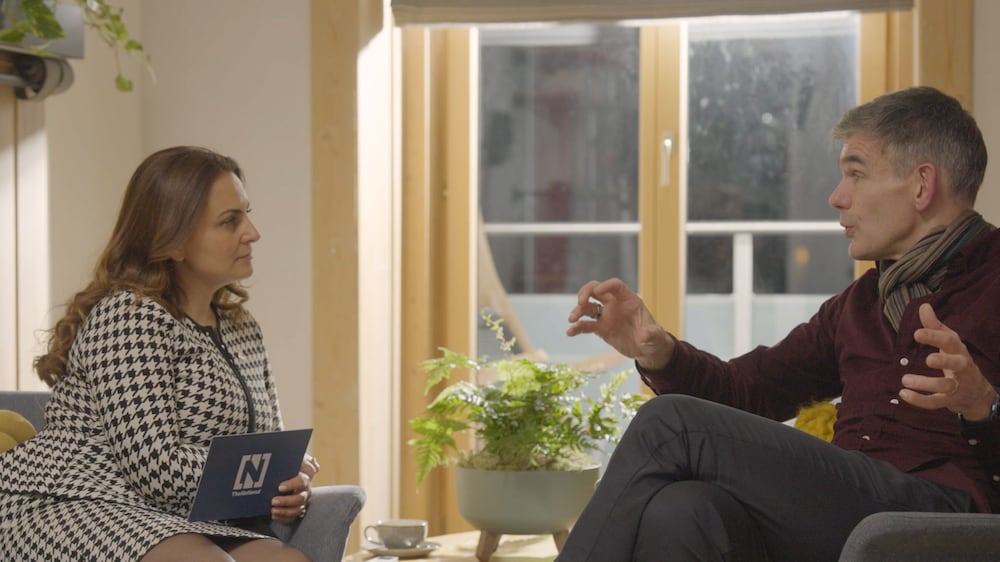On Wednesday, March 31, 2004, The New York Times reported that google was planning to launch its new email service the following morning – April Fool's Day.
By then, the California-based company had already emerged as the biggest internet search engine and wanted to complement this by offering email, something which, at the time, was dominated by the likes of MSN Hotmail and Yahoo Mail.
Sure enough, April 1 rolled around and google did indeed officially announce Gmail through a press release, which was suspiciously worded like a prank.
Twenty years later, Gmail is the most popular email service provider with an estimated 1.8 billion users – about 22 per cent of the world – as of 2023, data from industry tracker DemandSage shows. The Alphabet-owned company has used a combination of cool marketing, user-centricity and, of course, the power of its reach in cyberspace.
Also, while how you use Gmail has changed along the years, so has how Gmail uses you and your private information. Enhanced by the advent of generative AI, Gmail would be able analyse data from the content of your emails to deliver more targeted marketing campaigns to your inbox and with more conversational and relatable language, given what you have shared before.
Wayne Kurtzman, research vice resident at the International Data Corporation, says google has long relied on increasing adoption through a free level of product.
The tech giant “was early to design products with clean, effective interfaces that were intuitive”, Mr Kurtzman tells The National.
“In a time where computer use was complex to many, google delivered products that just worked. Their advantage was adding features just before they became a mainstream requirement.”
The 'prank' does the trick
In 1997, one year before google was formed and seven years before Gmail was launched, Hotmail was acquired by Microsoft and was the premiere email service, with nearly 16.4 million users, according to industry data estimates.
America Online Mail was second with about 11.6 million, while Yahoo Mail, introduced in October of that year, had 3.47 million.
Their rankings would stay the same until 2001, only that Hotmail ballooned its lead further. QQ Mail from Tencent, a company that may seem to only ring a bell in the modern era, already existed in 1999.
By 2002, Yahoo Mail quickly racked up almost 390 million users, overtaking Hotmail, which stagnated at 134 million.
Then, Gmail entered the scene on April Fool's Day 2004. Already widely used within google before its debut, it was initially released to beta testers and, subsequently, to others through an invitation-only scheme (I got invited in May 2005).
With a modest user base of more than 5.1 million, Gmail ended as the eighth most-used email service at the end of 2004. google then decided to spread the email love on Valentine's Day of 2007 when it made Gmail open to the public, meaning no more invites were needed to sign up.
It mostly flew under the radar until it ascended to fourth spot in 2010, with user numbers surging to more than 207.5 million.
google would finally claim the email crown in 2012 with more than 502 million users; through the years, both Yahoo Mail and Hotmail, which would later be folded into Microsoft Outlook, declined.
Fast-forward to today, nearly a third of all emails sent daily are on Gmail worldwide, which is equal to about 121 billion, and three quarters access the service on their smartphones, DemandSage adds.
The mobile access alone has been responsible for “boosting communication on a massive scale … due to this least expensive, most convenient, and most simple and flexible means of communication”, researchers at Columbia University write.
Gmail was also the first to organise emails in a conversational format and adding labels to messages, features that would be later adopted by other services.
“google was rarely the first innovator”, but it has succeeded in “earning a formidable market share”, Mr Kurtzman says.
The storage war
Email existed in its earliest form as electronic mail in the 1970s. In 1976, the late Queen Elizabeth II was the first head of state to send an email, using Arpanet, the network developed by the US Department of Defence that became the basis for the internet.
From then through the 1980s, email remained somewhat of a privilege, being used largely by governments, businesses, militaries and universities, or a luxury or novelty if you had the means to tap into it.
It was only in the mid-1990s when it became mainstream, when Microsoft released internet Mail, which would later become Outlook, and Hotmail and Yahoo Mail came into the scene.
Hotmail and Yahoo Mail, in particular, became popular because of two key features: they were one of the first free web-based email services, meaning they did not rely on internet service providers and could be accessed anywhere, and it offered free storages of 2MB and 4MB, respectively.
Now 4MB seemed whopping at the time, but laughable compared to today – and, apparently, even to google in 2004.
That's because when google announced Gmail, it said it would have 1GB of storage – an unprecedented, unheard-of offering that did fit into the mould of google's pranks (again, it wasn't). To make it clear, that's 250 times Yahoo Mail's storage and 500 times Hotmail's.
And when it became clear that Gmail was for real, it triggered a storage war: Yahoo in May boosted its storage to 100MB, upgrading it to 250MB by November, while Hotmail in June went straight up to 250MB – still significantly lower than Gmail's.
It was only in March 2005 that both Yahoo and Hotmail decided to match Gmail with 1GB of storage.
Today, Yahoo Mail offers the biggest free storage at 1TB, while google offers 15GB across Gmail and its other platforms. Although google provides a paid 2TB tier for $9.99, which doubles in cost if you opt for the plan with Gemini AI.
Users can “now get faster with replies, prioritise important emails and craft tailored messages using generative AI technology”, Najeeb Jarrar, director of marketing at google Middle East and North Africa, tells The National.
Can't spell email without AI
google's revenue is primarily driven by advertising and Gmail is no exception, especially it being part of google's vast ecosystem of services.
On Gmail's page on the Apple App Store, the so-called Privacy Nutrition Label lists down the data that may be collected from you, including your purchases, search history and usage data – information that can be used to track your preferences and which are used to send you “personalised” ads, or those you may be interested in (which, let's face it, all or most of the time you aren't).
google says it does not sell personal information, neither does it share that with advertisers – unless you've consented to that, or, as google puts it, “you have asked us to”.
This is where that familiar drill comes in: if you sign up for a certain app or service, it will most likely ask for your consent to collect some of your information.
Now, if you grant certain permissions on the Gmail iOS app for some website, this means google will be able to collect any or all of the data listed down, which could then be shared to advertisers.
Though indeed advertising is google's main revenue stream, it says it keeps google and “many of the websites and services you use free of charge”, according to google's privacy and terms page.
Advertisers, on the other hand, can bid for search terms – keywords or key phrases – which would lead to their advertisements landing on a user's Gmail account, if their data matches the criteria.
Keyword bidding is a common practice in internet advertising; “think of it as a split-second auction for digital ad space – one that runs every time a user searches a keyword”, according to US marketing platform Semrush.
'We should be optimistic about AI,' google tells The National at Davos 2024

“These ads are shown to you based on your online activity while you're signed into google,” the technology giant says, with the added guarantee that it “will not scan or read your Gmail messages to show you ads.” In 2017, google stopped scanning emails to sell targeted advertising.
Email, indeed, has outgrown its original mission of being a communication medium to also become a powerful marketing tool – unwanted or not – and artificial intelligence is helping its cause, especially now that google has its own generative AI platform Gemini.
“AI can also be used to segment email marketing campaigns based on customer behaviour and preferences,” says Jimit Mehta, chief executive and co-founder of San Francisco-based marketing start-up Abmatic AI.
“By analysing customer data, AI-powered algorithms can identify groups of customers with similar interests and behaviours, and use this information to create more targeted and personalised campaigns.”
AI is also expected to play a key role in email's evolution in the coming years, particularly in marketing. Marilyn Gil, a Florida-based email marketing expert, found some high-tech predictions by asking ChatGPT.
She discovered that in five years, natural language processing will make emails more conversational; in 10 years, AI will have the ability to detect and respond to the emotional state of email recipients; and in 20 years, email marketing could be experienced through brain computer interfaces, allowing for direct neural interaction with content.
“These are speculative visions, and the actual development of AI in email marketing will depend on technological advancements and ethical considerations,” she writes.
However, it's clear that AI will continue to play a crucial role in shaping the future of email marketing, making it more personalised, efficient and engaging.”
Indeed, Gmail has come a long way from its humble beginnings and influenced the evolution of electronic communications: it revolutionised the email search bar, extending it to files, calendar events and sites on google – “an essential tool for finding resources in an ever-expanding universe of research and information”, the Columbia University researchers write.
google does not routinely comment on its future plans for Gmail – even if the company surely has a lot in its storage.
“We will continue to update Gmail with features that help people communicate faster, easier and in their own personal way,” google's Mr Jarrar says.






